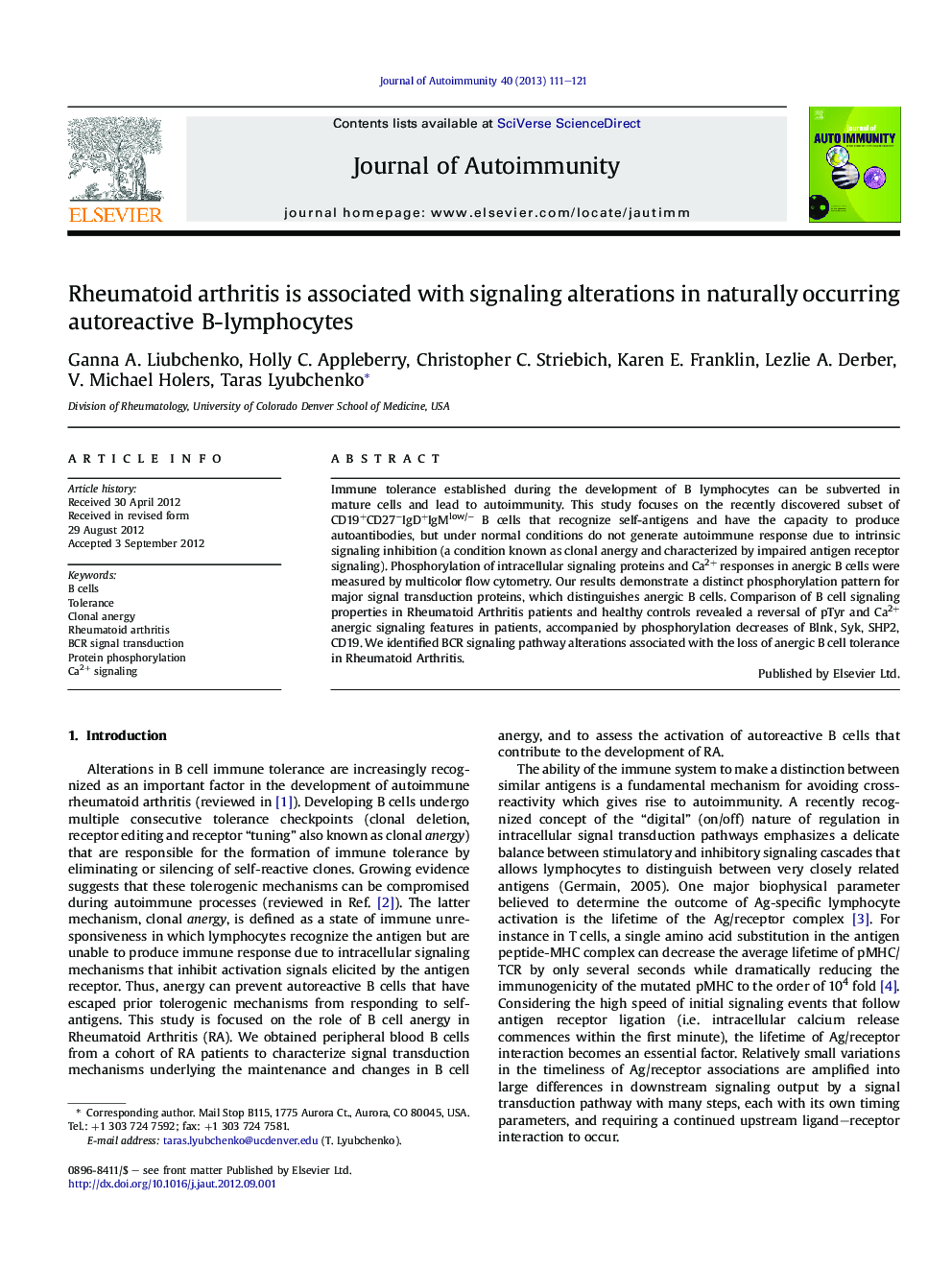| Article ID | Journal | Published Year | Pages | File Type |
|---|---|---|---|---|
| 3367868 | Journal of Autoimmunity | 2013 | 11 Pages |
Immune tolerance established during the development of B lymphocytes can be subverted in mature cells and lead to autoimmunity. This study focuses on the recently discovered subset of CD19+CD27−IgD+IgMlow/− B cells that recognize self-antigens and have the capacity to produce autoantibodies, but under normal conditions do not generate autoimmune response due to intrinsic signaling inhibition (a condition known as clonal anergy and characterized by impaired antigen receptor signaling). Phosphorylation of intracellular signaling proteins and Ca2+ responses in anergic B cells were measured by multicolor flow cytometry. Our results demonstrate a distinct phosphorylation pattern for major signal transduction proteins, which distinguishes anergic B cells. Comparison of B cell signaling properties in Rheumatoid Arthritis patients and healthy controls revealed a reversal of pTyr and Ca2+ anergic signaling features in patients, accompanied by phosphorylation decreases of Blnk, Syk, SHP2, CD19. We identified BCR signaling pathway alterations associated with the loss of anergic B cell tolerance in Rheumatoid Arthritis.
► Characteristic phosphoprotein signaling patterns in autoreactive anergic B cells. ► Loss of anergic B cell tolerance in Rheumatoid Arthritis. ► Alterations in BCR inhibitory signaling pathway in B cells producing autoAbs.
